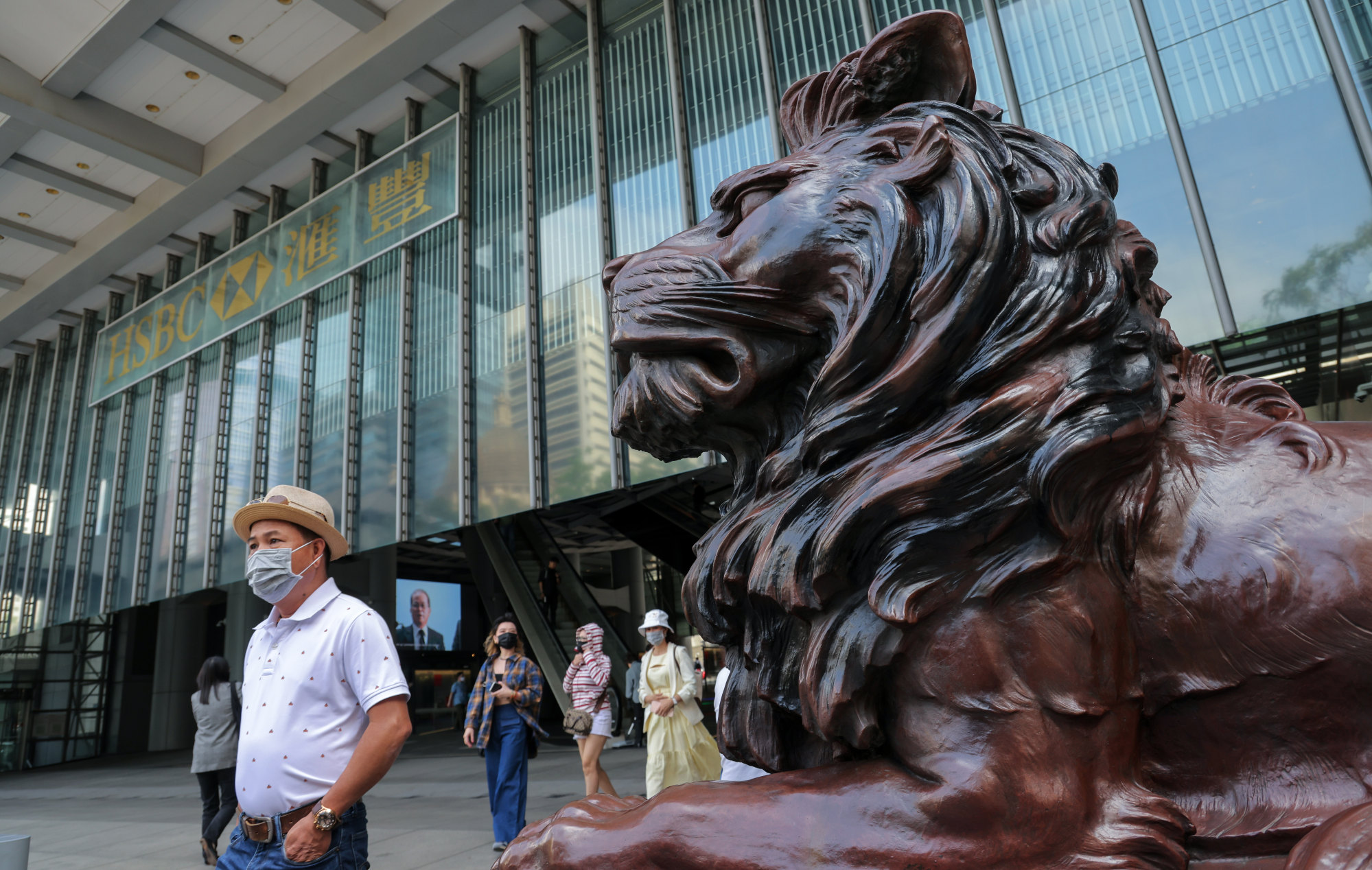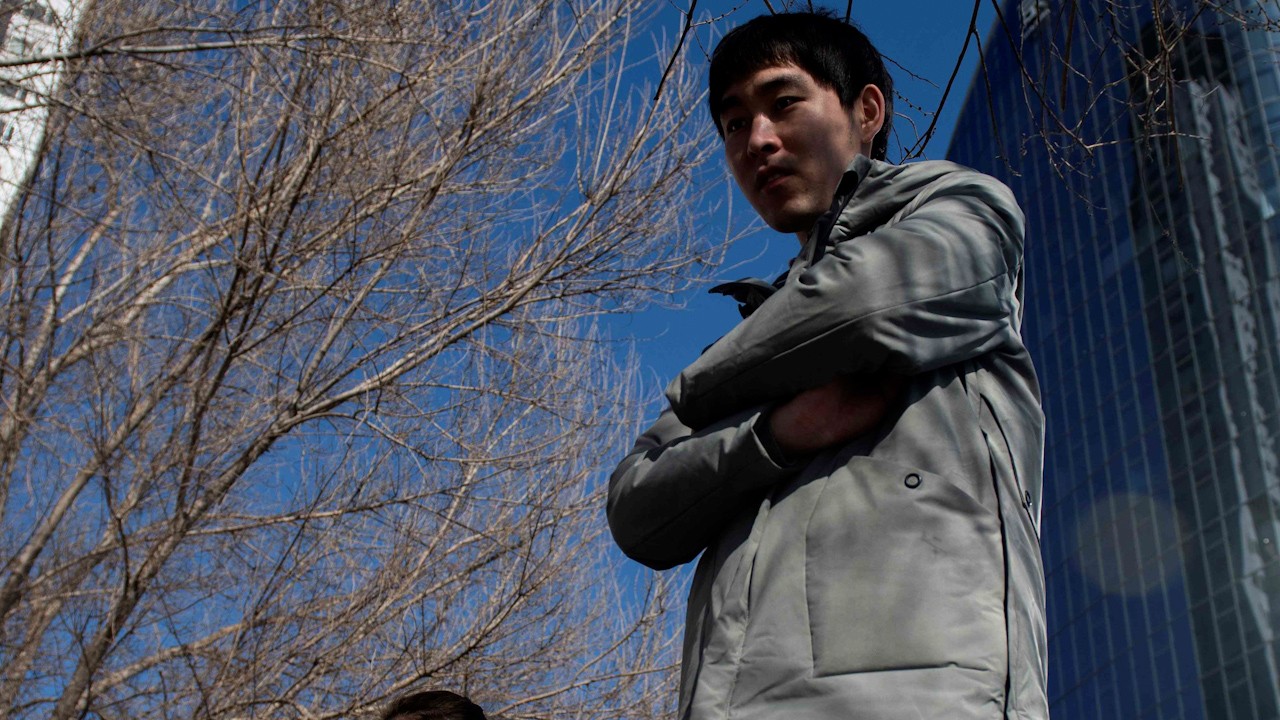
HSBC’s second-quarter profit beats estimates as it benefited from higher interest rates, cost control
- Pre-tax profit was US$8.77 billion, ahead of US$7.96 billion expected by analysts
- HSBC to pay quarterly dividend of 10 US cents a share; analysts expect full-year dividend payments of 61 US cents a share
The lender, one of Europe’s largest by assets, reported a pre-tax profit of US$8.77 billion, ahead of the US$7.96 billion expected by analysts.
“There is still much work to do, especially given the many challenges in the global economy, but I am confident about the future as we move further into the next phase of our strategy and focus on opportunities to drive value creation, diversify our revenue and retain tight cost control,” he said.
Shares of HSBC rose 1.7 per cent to close at HK$66.30 in Hong Kong on Tuesday following the announcement.
Revenue rose by 37 per cent to US$16.7 billion in the second quarter, while net interest income increased 35 per cent to US$9.31 billion.
HSBC said it would pay a quarterly dividend of 10 US cents a share and announced a US$2 billion share buy-back. The bank resumed paying quarterly dividends in the first quarter, the first time it had done so since 2019 and following the suspension of dividend payments in 2020.

Analysts expect the bank to pay a dividend of 61 US cents a share for full-year 2023, according to market consensus.
“The vote was very clear, and I believe that matter is now behind us,” Quinn said during an interview on Bloomberg Television on Tuesday. “That matter is now closed from the point of view of HSBC.”
HSBC’s quarterly results included credit impairments of US$900 million, including US$300 million related to potential soured loans in its Chinese commercial real estate portfolio. The prior-year’s results included US$142 million in credit impairments related to its Chinese commercial real estate portfolio.
Hong Kong’s banks raise rates as funding cost soars to 16-year high
“There are still challenges in [the Chinese real estate] sector. We think it has stabilised,” Quinn said on a call with journalists. “We think there is potential in the next six to 12 months to see some of those challenges being worked through. There have been some policy measure changes, which have been beneficial. I think the sector is still in a challenging environment, but we’re comfortable with our provisions at the half year.”
Net interest margin, an important measure of profitability, rose to 1.72 per cent, compared with 1.29 per cent in last year’s second quarter. It was 1.69 per cent in the first quarter.
“Overall, good results, encouraging buy-back update, and positive outlook,” Citigroup analysts said in a research note on Tuesday. “This should be taken well.”

HSBC’s business in Asia, including its single largest market in Hong Kong, saw its pre-tax profit jump 71 per cent to US$5.07 billion in the second quarter.
“We are already seeing renewed energy in the market with the lifting of Covid restrictions,” said Irene Lee, chairman of Hang Seng Bank. “Emerging opportunities for growth include new-economy sectors, green technologies and innovation.”
Lee added that the Greater Bay Area (GBA) held great growth potential and the bank will continue to remain focused on the Hong Kong market, which will be “an integral part of the GBA”.
As interest rates have risen, HSBC and other lenders in the United Kingdom, its second biggest market, are facing pressure from regulators to pass on higher interest rate gains to savers.
“We have positioned our savings rates to actually offer our customers what we believe to be fair and appropriate pricing,” Quinn said on the call with journalists. “Our pricing of savings in the UK and our pricing of mortgages is based on what we believe is the right price to charge and the right price to pay in order to reflect the yield curve that exists at any point in time.”
In HSBC’s global banking and markets segment, pre-tax profit fell by 7 per cent to US$1.54 billion in the second quarter. The commercial bank reported a pre-tax profit of US$3.13 billion, compared with US$1.77 billion a year earlier.
Pre-tax profit in its wealth and personal banking segment rose to US$3.32 billion in the quarter, compared with US$1.38 billion a year earlier.
Separately, HSBC said it had agreed form a joint venture with business to business fintech Tradeshift focused on the development of embedded finance solutions and financial services apps.
As part of the agreement, HSBC will make a US$35 million investment in Tradeshift in two stages and join its board. The agreement is part of a funding round expected to raise a minimum of US$70 million from HSBC and other investors.
Additional reporting by Mia Castagnone


